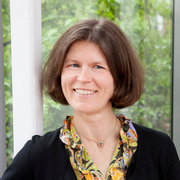- Level Foundation
- المدة 9 ساعات hours
- الطبع بواسطة Dartmouth College
-
Offered by

عن
Learn how to use professional tools and libraries to write and build C programs within the Linux operating system. This seventh and final course in the C Programming with Linux Specialization will allow you to develop and use your C code within the Linux operating system. Using libraries in C is a fundamental concept when it comes to sharing code with others. In addition to compiling and linking, you will also learn how to pass arguments to an executable program. As you embark on your future career as a programmer, you will be able to continue your coding adventures with professional coding environments used by C programmers around the world. Why learn C and not another programming language? Did you know that smartphones, your car’s navigation system, robots, drones, trains, and almost all electronic devices have some C-code running under the hood? C is used in any circumstance where speed and flexibility are important, such as in embedded systems or high-performance computing. At the end of this course, you will reach the last milestone in the C Programming with Linux Specialization, unlocking the door to a career in computer engineering. Your job Outlook: - Programmers, developers, engineers, managers, and related industries within scientific computing and data science; - Embedded systems such as transportation, utility networks, and aerospace; - Robotics industry and manufacturing; - IoT (Internet of Things) used in smart homes, automation, and wearables. - IEEE, the world’s largest technical professional organization for the advancement of technology, ranks C as third of the top programming languages of 2021 in demand by employers. (Source: IEEE Spectrum) This course has received financial support from the Patrick & Lina Drahi Foundation.الوحدات
Let's get started
1
Videos
- Welcome
About this course
6
Readings
- Course syllabus
- Two universities teamed up to offer a new specialization in C Programming with Linux
- The course team
- Collaborative MOOC
- Earn a Professional Certificate from Dartmouth and IMT
- Get the most out of this course
We want to learn more about you
1
Discussions
- Introduce yourself
1
Readings
- Pre-course survey
Learn about the tools
1
Assignment
- Are you ready to start?
2
Videos
- Learn how to use Weblinux
- Learn how to use Taskgrader
2
Readings
- What is Taskgrader
- Access to WebLinux
Interacting on the discussion forum
1
Discussions
- Learn how to post code on the Coursera forum
1
Readings
- Learn how to post code on the Coursera forum
Technical, general, organisational and other questions
1
Discussions
- Technical, general, organisational and other questions
Declaring and defining functions
1
External Tool
- Activity: distinguish between function declaration and function definition
1
Videos
- Distinguish between function declaration and function definition
Using the math library in C
1
External Tool
- Activity: use the math library
1
Videos
- Use the math library
Using multiple libraries in C
1
External Tool
- Activity: using the JPEG library
1
Videos
- Use multiple libraries in C
Reflect on your learning progress
1
Assignment
- Self-assess your learning in Libraries in C
Modularizing a program
3
External Tool
- Activity: Compiling
- Activity: Linking
- Activity: Super Image Project
3
Videos
- GCC details
- Object files
- Modify object files
Creating and using a Makefile
2
External Tool
- Activity: Makefile practice
- Activity: create and use a Makefile
3
Videos
- Make file
- More elaborate Makefile
- Run a program with Makefile
Creating a static Library
2
External Tool
- Activity: create your library
- Activity: Modify your library
3
Videos
- Create your library
- Modify your library
- Ultimate makefile
Reflect on your learning progress
1
Assignment
- Self-assess your learning in Modularization Libraries and Makefiles
Using arguments for main()
1
External Tool
- Activity: pass numbers to a program from the command line
2
Videos
- Pass arguments to a program from the command line
- Use arguments passed to a program from the command line
Reading from a file
1
External Tool
- Activity: read numbers from a file
1
Videos
- Read numbers from a file
Reading until the end of the file
1
External Tool
- Activity: find the end of the file
1
Videos
- Read until the end of the file
Writing to a file
1
External Tool
- Activity: write numbers to a file
2
Videos
- Write numbers to a file using fprintf()
- Append numbers to a file at the end
Reflect on your learning progress
1
Assignment
- Self-assess your learning in File operations in C
Closing the course and the specialization
1
Videos
- Farewell
We value your feedback
1
Readings
- End of course survey
Auto Summary
Unlock the power of C programming within the Linux operating system with this comprehensive and final course in the C Programming with Linux Specialization. Taught by expert instructors and supported by the Patrick & Lina Drahi Foundation, this course provides an in-depth exploration of professional tools and libraries essential for writing and building robust C programs. You'll delve into crucial concepts such as compiling, linking, and passing arguments to executable programs, equipping you with skills that are highly valued in the programming world. C is the backbone of many critical systems, from smartphones and navigation systems to robotics and high-performance computing, making it an invaluable language to master. This course is ideal for aspiring programmers, developers, engineers, and managers interested in scientific computing, data science, embedded systems, robotics, and IoT. By the end of this course, you'll be ready to take on a career in computer engineering, leveraging the speed and flexibility of C in real-world applications. Rated highly by IEEE Spectrum as one of the top programming languages in demand by employers, C offers numerous career opportunities in various industries. With flexible subscription options, you can start your journey with either the Starter or Professional plan, and complete this foundational course in approximately 540 hours. Join Coursera and take the final step in your C programming mastery, and open doors to an exciting and dynamic career in technology.

Rémi SHARROCK

Petra Bonfert-Taylor


